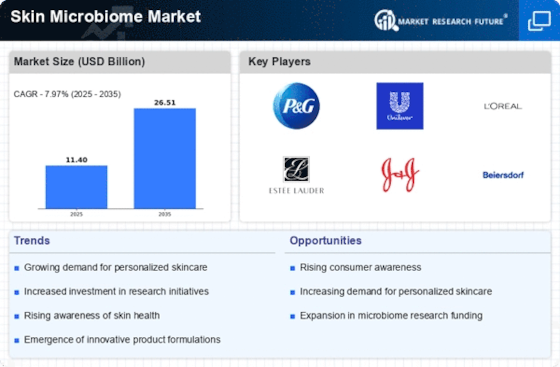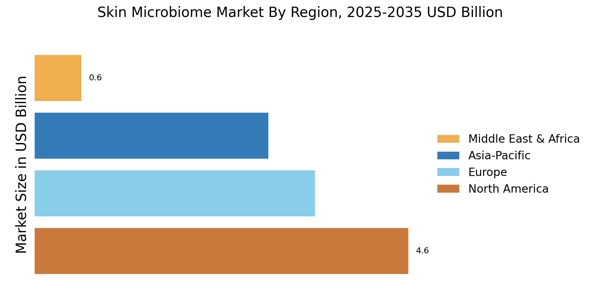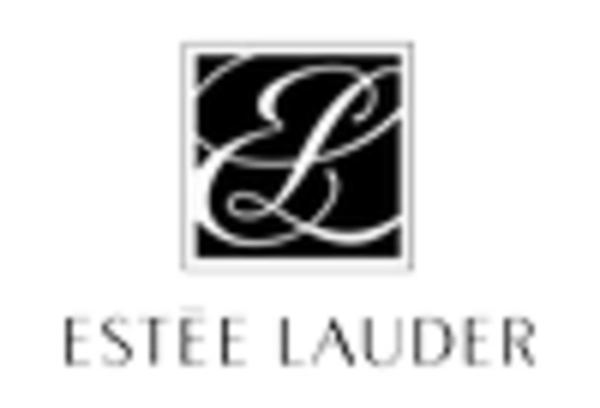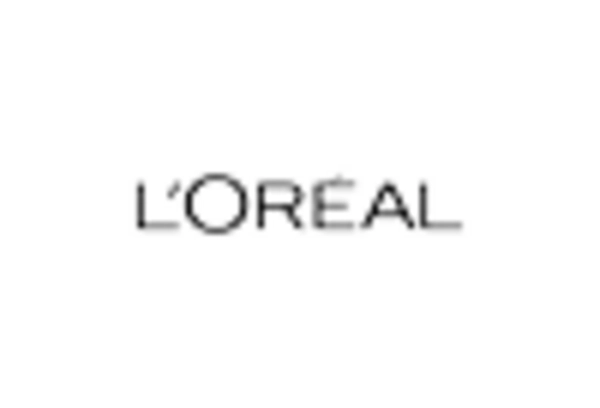Rise of E-commerce Platforms
The proliferation of e-commerce platforms is transforming the way consumers access skincare products, thereby impacting the Skin Microbiome Market. Online shopping offers convenience and a wider selection of products, allowing consumers to explore niche brands that focus on skin microbiome health. Recent statistics suggest that e-commerce sales in the beauty sector have surged, with online sales accounting for nearly 30% of total beauty sales. This trend is expected to continue, as consumers increasingly prefer the ease of purchasing skincare products online. Consequently, brands are investing in digital marketing strategies to enhance their visibility in the Skin Microbiome Market.
Demand for Clean Beauty Products
The clean beauty movement, characterized by a preference for products free from harmful chemicals, is significantly influencing the Skin Microbiome Market. Consumers are increasingly scrutinizing ingredient lists and opting for formulations that are not only effective but also safe for their skin microbiome. This trend is supported by data indicating that over 60% of consumers are willing to pay a premium for clean beauty products. As a result, brands are reformulating their products to align with this demand, incorporating natural ingredients that nurture the skin microbiome. This shift towards clean beauty is likely to propel growth within the Skin Microbiome Market.
Growing Awareness of Skin Health
The increasing awareness regarding skin health and its connection to overall well-being appears to be a pivotal driver for the Skin Microbiome Market. Consumers are becoming more informed about the role of the skin microbiome in maintaining skin barrier function and preventing various skin conditions. This heightened awareness is reflected in the rising demand for products that support skin microbiome health, with the market projected to reach approximately 10 billion USD by 2027. As consumers seek products that promote a balanced skin microbiome, brands are responding with formulations that incorporate prebiotics and probiotics, thereby enhancing their offerings in the Skin Microbiome Market.
Increased Focus on Personalization
The trend towards personalized skincare solutions is becoming increasingly prominent within the Skin Microbiome Market. Consumers are seeking products tailored to their unique skin types and microbiome profiles, leading to a rise in brands offering customized skincare regimens. This shift is supported by research indicating that personalized skincare can lead to better outcomes for skin health. As a result, companies are investing in technologies that analyze individual skin microbiomes, allowing for the creation of bespoke products. This focus on personalization is expected to drive growth and innovation within the Skin Microbiome Market.
Innovations in Product Formulation
Innovations in product formulation are driving advancements in the Skin Microbiome Market. Researchers and formulators are exploring new ways to enhance the efficacy of skincare products by incorporating ingredients that support the skin microbiome. This includes the development of microbiome-friendly formulations that utilize live bacteria, prebiotics, and postbiotics. The market for such innovative products is anticipated to grow, with estimates suggesting a compound annual growth rate of over 8% in the coming years. As consumers seek effective solutions for skin health, the emphasis on innovative formulations is likely to play a crucial role in shaping the Skin Microbiome Market.

















